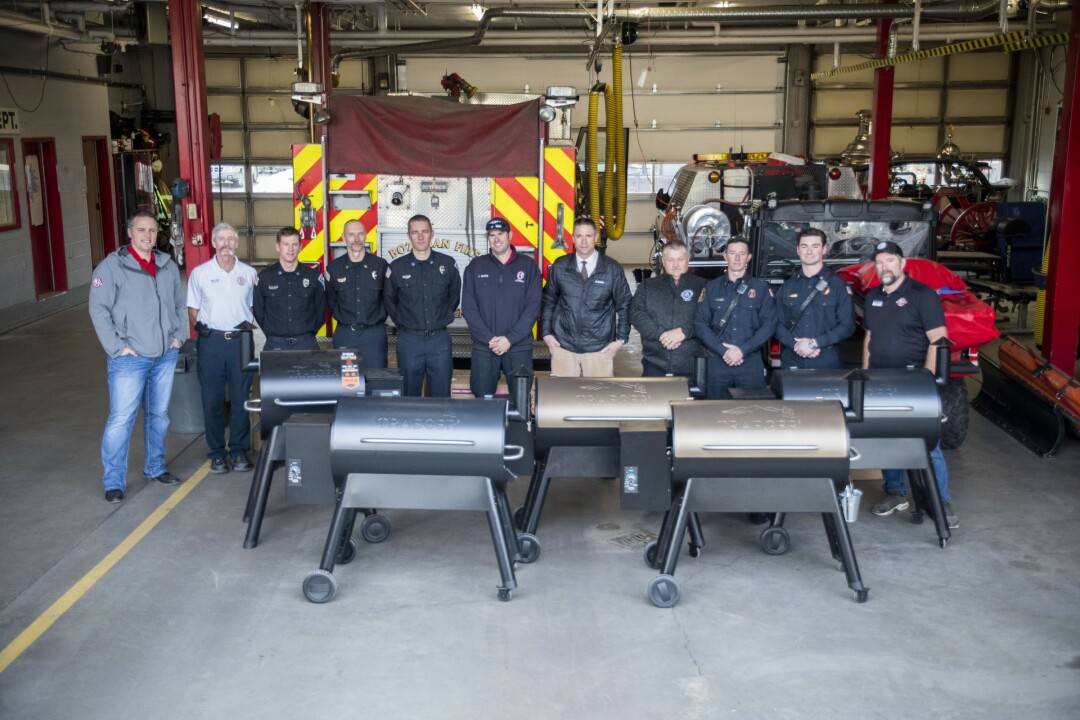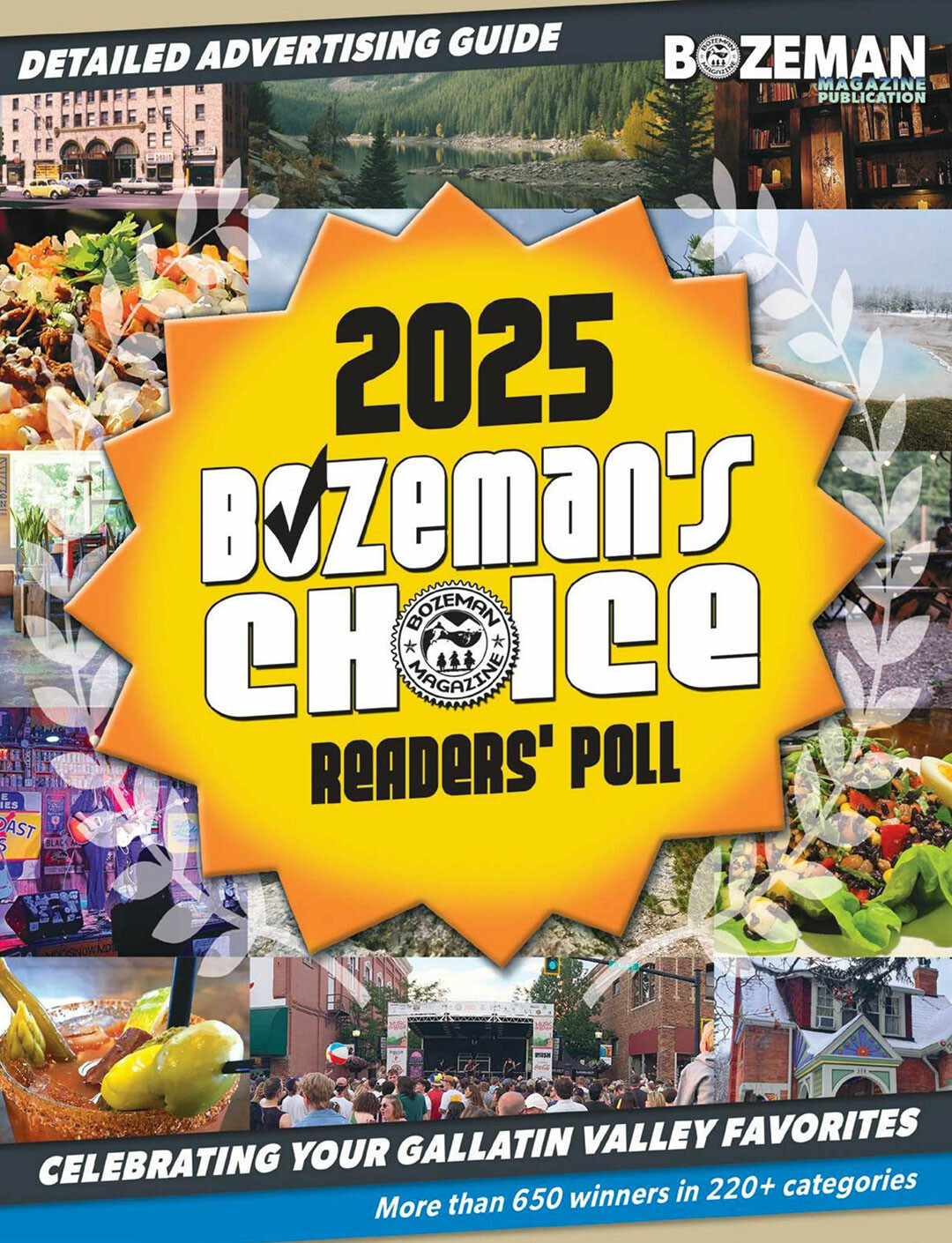Montana State University and its partners at the Montana Office of Public Instruction and the University of Montana have received a $2.3 million grant for a program that is designed to train high-quality school and mental health counselors to work in rural areas of Montana. The grant, from the U.S. Department of Education, will be used for a five-year project, "Rural Mental Health Preparation/Practice Pathway.” Montana was one of only three states to receive this grant.
“We have a real need to recruit, prepare and retain counselors to work in Montana’s rural schools,” said Anna Elliott, the grant’s principal investigator and an assistant counseling professor in the MSU Department of Health and Human Development in the College of Education, Health and Human Development. “This grant aims to help K-12 students in these rural schools, as well as to provide excellent training to help our graduates be successful in these settings.”
MSU’s partners on the grant include the University of Montana’s Department of Counseling and the Montana Office of Public Instruction. Additional state partners include the Montana Rural Education Association, the Montana Small Schools Alliance and the Montana School Counselor Association. Co-principal investigators on the grant are Jayne Downey, associate professor in the MSU Department of Education; Rebecca Koltz, head of the MSU Department of Health and Human Development; and Kirsten Murray, professor in the Department of Counseling at UM.
“In Montana, we know that our students need additional access to mental health supports,” said Montana Superintendent of Public Instruction Elsie Arntzen. “I am proud to partner with Montana’s universities to increase the talent pipeline of counselors to our rural schools and communities. Student mental health continues to be a top priority at the Office of Public Instruction under the agency’s Montana Hope initiative.”
Elliott said the majority of the grant funds will support graduate students in their preparation and their post-graduation placement, including their lodging, travel and living expenses during a 10-month internship they must complete before graduation.
“There’s a real value to having our students and graduates intentionally integrated in the community where they’re serving,” Downey said. “We want to help make it possible for these students to integrate into their communities so that they can make real connections.”
As part of the grant, MSU and UM will provide financial support for approximately 10 students each year who are enrolled in their university’s graduate counseling and counselor education programs. Over the lifetime of the grant, approximately 50 students will be supported who will provide counseling at high-needs rural schools over the course of the five-year grant. Additional support will be available for one year for program graduates who choose to continue to work after graduation in a rural setting.
“Building five cohorts of counselors-in-training prepared to address rural counseling needs specific to Montana is an amazing opportunity,” Murray said. “The students from the two institutions will participate in training and preparation together, building lasting professional networks across the state that will not only serve them now but in their future careers.”
MSU and UM are each adding a class to their respective counseling curriculum that is focused on special issues related to working in rural populations, and Elliott anticipates that parts of several other courses will be adapted to more prominently highlight issues in rural counseling.
Program participants will also have a number of opportunities to gain experience in rural settings, Downey noted. The degree program takes two years to complete; in their first semester, students participate in a short rural life orientation, and in the second semester they participate in a rural practicum. In their second year, students in the program will complete a 10-month internship in a rural community, with each student providing at least 600 hours of service.
Finally, Elliott said, to make MSU’s and UM’s programs more accessible to counseling students serving rural communities across the state, those programs are growing more agile in their delivery systems and schedules, aiming for students to be physically on campus just one day per week during their internship year.
Holly Mook, Coordinated School Health Unit director within the Health Enhancement and Safety Division at the OPI and the grant’s project director, said the grant will address a critical need in Montana’s rural schools.
“Many of our rural schools do not have access to school mental health supports, let alone community mental health supports, due to various things like geography or lack of trained professionals,” she said. The grant’s partnerships strengthen it, she added.
“The partnerships within the grant are critical in training and preparing graduate students in rural life and cultural responsiveness, as well as promoting graduate programs to existing school staff in rural areas in order to meet these needs,” Mook said.
The program is roughly modeled after another five-year grant project based in MSU’s College of Education, Health and Human Development that aims to address a shortage of teachers in rural schools across the state. Announced in October, that program is called “Addressing Rural Recruitment and Retention in Montana" and is supported by a $6.2 million grant.
“We realized that this teacher preparation model had real potential to support the preparation, recruitment and retention of rural school counselors and mental health professionals,” Downey said. “So, we’ve adapted the teacher preparation model to fit for rural school counselor preparation.”
Elliott added that many parallel challenges exist between the two.
“As a state, Montana is large, remote and isolated. We’re aware of the fact that Montana has one of the highest suicide rates in the country every year,” she said. In small, rural schools, there are also often limited resources, she added. Limited resources often translate into limited support for mental health staff.
Koltz said the “gravity” of these needs would be too much to address without the unique collaboration between Montana's two flagship universities and the Office of Public Instruction.
“By working together, the MSU and UM counseling programs hope they will be able to increase the number of counseling professionals prepared and equipped to make a real difference in rural communities across Montana,” Koltz said.
Elliott added that “research that shows that preventative measures are what lead to better mental health in communities. If we can get mental health counselors into schools and help support kids and their wellness as they’re going through the school system, that could potentially have a larger systemic impact.”
Alison Harmon, dean of the College of Education, Health and Human Development, said that the college’s efforts to develop a network of both rural educators and mental health practitioners is a creative approach to improving services.
“The contribution MSU will make to this project is supported by a strong collaboration among faculty in both the Department of Education and the Department of Health and Human Development,” she said. “Having a grant-funded project that connects programs across this college is both unique and powerful – and certainly a first in my experience as dean.”






News Comments
Finally, art students need these amenities for graphic designing and essay writing.
8 Essential Factors to Consider Before Joining College
bupole
Wednesday, Dec. 11, 2024
Thank you
Open Auditions for Annie
Monday, Sep. 16, 2024
I’m at the Bozeman airport where your painting, “Blowing East” is displayed. It’s absolutely gorgeous! Bravo, Marci!!
The Artists’ Gallery in Bozeman’s Emerson Cultural Center May Exhibits
Sunday, Jun. 30, 2024
This is so typical of a sign in, which we should not have to do to check if we or some one in our party got a permit. I have been working or "creating an account" for 30 minutes and just get the same ...
Smith River permit drawing results available
Sunday, Mar. 10, 2024